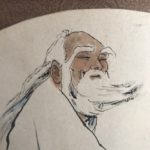The Trump Trumpet II: Recapping the President’s Results In International Trade. The previous post of the Trump Trumpet focused on The American Economy. This post will be on International Trade.
Perspective
The free market system of the world creates “spontaneous order.”* Free trade is a constantly evolving system that, in its purest form, requires no state intervention or government regulation. The system’s core principle is voluntary exchange, based on private property and the private means of production.
I date its best explanation and justification from the publishing of “The Wealth of Nations” by Adam Smith in 1776.
The World Economy
International trade can be a complex subject to discuss, but in simple terms, we can say that it is best accomplished when there is a free market among all nations, that is, a level and equal playing field for all. That means no tariffs, no taxes, no levies, and no trade constraints of any kind between one nation and another. In the past, America’s relationship with its trade partners has not been symmetrical. Trade relationships tended to be tilted in favor of the other nation because America had the world’s largest economy. Consequently, our trade negotiators used that fact to create asymmetrical relationships that favored the other nation. President Trump did not believe such an approach was in America’s best interests and had a campaign promise in 2016 that he would rectify these imbalances. He kept his promise by:
1. Replacing the North American Free Trade Agreement (NAFTA) with the United States Mexico Canada Agreement (USMCA); the latter’s focus was promoting production and jobs in the United States, not so NAFTA.
2. Withdrawing America from the Trans-Pacific Partnership (TPP), the latter being a paperwork exercise that added little or no value to America’s international trade with 12 other countries.
3. Imposing tariffs on steel and aluminum to mitigate total reliance on foreign sources of supply in the interests of national security.
4. Removing unfair trade practices between the European Union and the United States and initiating reform of the World Trade Organization.
5. Imposing tariffs on China to force China to negotiate more fairly and equitably with the United States across all trade issues.
In sum, President Trump focused on real results, not political posturing. The accomplishments highlighted above were not perfect, but nothing ever is in the world of international trade. However, they were accomplishments that far exceeded what the previous four presidents had achieved.
Links
Internal Link: https://whitebeardwisdom.com/the-trump-trumpet-recapping-the-presidents-results/
Internal Link: https://whitebeardwisdom.com/the-free-market-is-based-on-spontaneous-order/
External Link: https://theasianantiquarian.com/
Book References*
F.A. Hayek, 1945, The Use of Knowledge in Society
F.A. Hayek, 1974, The Pretense of Knowledge
S. Horowitz, 2001, From Smith to Menger to Hayek: Liberalism in the Spontaneous-Order Tradition


